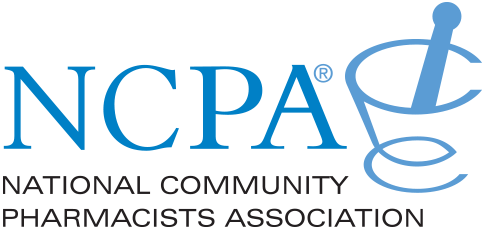
Proposed Legislation Could Address Pharmacy Closures, Save Medicaid $2 Billion Over 10 Years

Kaite Krell, MPH, discusses the critical role of independent pharmacies and how proposed legislation could address challenges with PBMs.
In an interview with Pharmacy Times, Kaite Krell, MPH, director of congressional affairs at the National Community Pharmacists Association (NCPA), discusses the critical role of independent pharmacies, particularly in underserved communities, and the challenges they face due to factors such as pharmacy benefit managers' (PBMs') spread pricing policies. She highlights the essential services these pharmacies provide, such as personalized medication counseling and adherence packaging, and emphasizes their importance for patients on Medicaid and Medicare who rely on them for accessible health care.
Krell also addresses the potential $2 billion in Medicaid savings that could come with the Protecting Pharmacies in Medicaid Act, which aims to eliminate spread pricing by pharmacy benefit managers (PBMs).
Pharmacy Times: Senator Peter Welch (D-Vt) has highlighted the increasing number of pharmacy closures, particularly in rural areas, citing PBM spread pricing as a contributing factor. From your perspective, how critical is the survival of independent pharmacies to patient access, particularly in underserved communities?
Kaite Krell, MPH: It's huge. We have pharmacies that might be the only health care provider for tens of miles, hundreds of miles around. And pharmacists are folks that know the community, they're happy to go in and talk to them. It doesn't feel as quite a clinical setting. They're supposed to be there giving you advice on your drugs, and so going in with questions isn't that scary. And you're looking at losing maybe the only pharmacy in your area, and then you have to drive, you know, half an hour, an hour, 2 hours, to the closest pharmacy, or you're getting it by mail. I've had a number of my pharmacists come in and say, you know, “I've had patients switched over to mail order,” which, if that saves patients money and it's what they want, fine. But then they get these seniors who come back in and don't understand, how does this drug work? Are there going to be complications? How am I supposed to be taking it? When am I supposed to be taking it? And sometimes they'll offer additional services, like packaging, so all of your lunch meds, if you have a bunch of meds that you're taking every day, into one little package, so that you can open it up and know those are your lunchtime meds, or those are your dinner meds, or those are your bedtime meds. And so, you lose those services when you don't have somebody in the community who knows the community, and it's so huge that 20% of most of my pharmacies’ prescriptions or drugs or patients are Medicaid patients, [and] 55% are in Medicare and Medicaid. The majority of all of our pharmacies, the majority of their patients are on government programs, and so making sure that we are keeping these government programs as helpful and as open, as clear as possible, so that the patients have a pharmacy and their pharmacy can stay open, they can get the drugs and the care that they need, it's huge.
Pharmacy Times: Supporters of the bill have highlighted an estimated $2 billion in Medicaid savings over 10 years. How do you think these potential savings could be reinvested to further support pharmacy services and patient care within the Medicaid program?
Kaite Krell, MPH: Yes, so I know that currently Congress is looking at this. It's…a little over $2 billion over the course of 10 years. And right now, Congress has been trying to figure out how they could maybe use that money to keep the government funded. And so, it's not necessarily easy for us to say, “Oh, we're going to take this money and immediately push it over here.” They're trying to figure out how they can fit it into their legislative priorities, which could go to telehealth, it could go to physician pay cuts that they do every year. We would love to see it in any kind of pharmacy realm, and maybe that helps with some of the other areas, either in commercial or in Medicare, where things are a little bit more expensive, because this was seen as a big saver in Medicaid. But in all reality, that comes down to Congress's decision on how they want to use it, probably to pass some other legislation that costs something. And so, if we can get this across the finish line as a saver of taxpayer dollars, and we can use that leverage to make sure that we're actually getting pharmacies paid accurately and saving taxpayer dollars, which means that they can then put another program in, like funding telehealth, we're all for it, as long as we can get it across the finish line to help the patients and the pharmacies. That's really what we're trying to see, is how we can put it into some kind of health care package that they are looking at in the future.
Newsletter
Stay informed on drug updates, treatment guidelines, and pharmacy practice trends—subscribe to Pharmacy Times for weekly clinical insights.


























